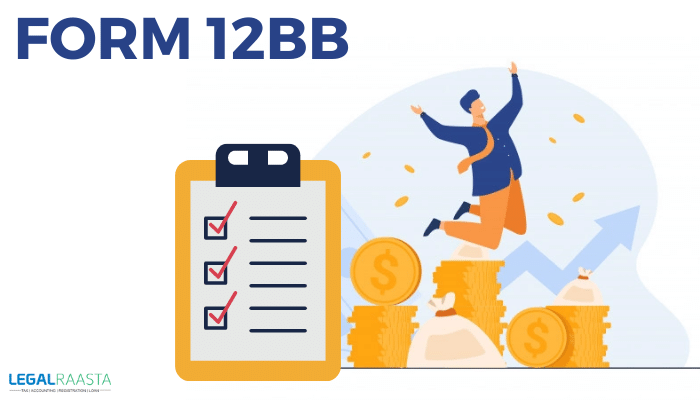Powers and Responsibilities of SEBI
SEBI, Securities and Exchange Board of India is an apex body constituted by the Government of India to improve the regulation of securities market in India. The main function of SEBI is to protect the interests of investors in securities and to promote the development of, and to regulate the securities market so as to ensure orderly growth with proper safety measures. It formulates policy, frame rules and guidelines for the efficient working of stock exchanges. It also supervises their working to check fraudulent activities, insider trading etc. It was established in 1988 as a non-statutory body under the provisions of Securities & Exchange Board of India Act, 1992. SEBI is responsible for regulating the securities market by formulating the SEBI (Stock Brokers & Sub-Brokers) Regulations, 1992 which came into force with effect from January 21, 1993.
Organization Structure of SEBI
SEBI has a hierarchical structure that is divided into numerous departments, each of which is led by a department head. The following are some of SEBI’s departments:
- Debt and Hybrid Securities
- Corporate Finance
- Economic and Policy Analysis
- Human resources
- Investment Management
- Market for Commodity Derivatives
- International Affairs
- National Securities Market Institute
Board of Directors
- SEBI’s senior management is made up of a Board of Directors who are selected by several government agencies.
- The Union government of India nominates the Chairman of Securities and Exchange Board of India.
- Two officers from the Ministry of Finance of the Union.
- A member will be appointed from the RBI (Reserve Bank of India).
- Another five members will be appointed by the Union government.
The functions of SEBI as per the Act include:
- To promote and regulate orderly development of capital markets, to protect investors in securities and to provide services and facilities for such protection.
- To ensure fair dealing in securities and to prevent fraudulent activities and insider trading.
- To develop efficient, reliable and transparent stock exchange mechanism for clearance and settlement of securities transactions.
- To promote and to regulate the market for derivative products like, securities futures contracts, options and swaps including collective investment schemes such as mutual funds, depositories etc.
- To develop self-regulatory organizations in order to check fraudulent activities in securities markets.
SEBI has wide range of power and responsibilities:
1. Enforcement:
SEBI has wide power and authority to enforce the provisions of the Securities Contracts Act, 1956, the Depositories Act, 1996, BIFR (Bankruptcy laws) and also various directions issued by the central government.
2.Appointment of officers/employees:
It can appoint its own officers or employees as well as co-opt any officer of the Government as its officers.
3. Investigation:
It can conduct investigation under the provisions of the Act or make incidents inquiry itself.
4. Subordination to it by other Authorities, etc.:
Any person, authority or authorities establishing any schemes or regulating or controlling any markets may place themselves in subordination to SEBI.
5. Financial Assistance:
The Board can provide financial assistance to SEBI sub- Committees for investigations, etc.
Powers of SEBI
1. Power of search and seizure:
Under Section 10 SEBI is empowered to search any premises or place where it believes that any books of accounts, documents, vouchers, computer disc or storage devices used in connection with securities market is kept and seize them if necessary. Section 11 of the Act gives it power to issue search warrants for any place or premises occupied by a person reasonably suspected of having committed an offence punishable under the Act, etc.
2. Power of arrest is another power of SEBI :
Under Section 12 any officer of SEBI or any other police officer not lower in rank than that of an Assistant Superintendent of Police, may arrest without warrant any person who has committed an offence punishable under the Act.
3. Power for service or attachment:
Under section 14 SEBI or any officer authorized by it in this behalf can serve a copy of order made by it on the concerned person through its officers and also attach their property pending disposal of any proceedings under the Act.
4. Appointment of officials, etc.:
In terms of Section 19, SEBI may appoint its officers, employees and others as deemed necessary for the discharge of functions under the Act. It can also co-opt any officer of Government or Law enforcement agency as an officer of SEBI.
5. Power to make regulations:
The Board may, with the previous approval of Central Government, by notification in Official Gazette, make rules consistent with the Act for carrying out the purposes of the Act. These rules are called ‘Securities and Exchange Board of India (Futures Trading) Regulations, 2004’.
6. Granting sanctions is a power of SEBI :
Under Section 21 SEBI may grant sanction to commence any proceedings before Appellate Tribunal or it even by itself -for sanctioning prosecution under the Act. It keeps a comprehensive record of all proceedings before it.
7. Recovery of dues:
Under Section 28 the Board has been given the power to recover from any person any sum which he is liable to pay under this Act and any other sum payable by him under this Act or rules made thereunder. The Board may file a suit for recovery in a Civil Court. The Civil Court will not have Jurisdiction to entertain any suit instituted for recovery of money due to SEBI, without the previous sanction of SEBI.
8. Power of Central Government:
Under Section 30(1) the Board has been given powers and functions as are exercisable by a civil court under the Code of Civil Procedure, 1908 (5 of 1908) in respect of the following matters, namely:
(a) Summoning and enforcing the attendance of any person
(b) requiring discovery and production of any document;
(c) receiving evidence on affidavits;
Section 30 (2-A) provides for attachment proceedings under the Code. Under Section 30 (3) the Board has been empowered to issue a search warrant and if it considers it necessary so, for compelling the attendance of any person.
What are SEBI’s Mutual Fund Regulations?
SEBI’s Mutual Funds Regulations are as follows:
- Any group company that includes a fund’s asset management company cannot own 10% or more of the asset management company’s equity and voting rights.
- This asset management firm is not allowed to sit on the board of any other mutual fund.
- All indexes, with the exception of the index for a sectoral or thematic index, have a stock cap of 25%. For certain indexes, the cap cannot be higher than 35%.
- The top three index constituents cannot have a combined weight of more than 65 percent.
- Before being launched, new funds must declare the status of their compliance to the SEBI.
- Exit penalties must be paid by liquid scheme investors who leave the scheme within seven days.
Conclusion
SEBI (Securities and Exchange Board of India) is the body in charge of ensuring that our country’s share market runs smoothly. It is also SEBI’s responsibility to ensure that investors’ hard-earned money is not wasted when they invest in the stock market. Aside from that, SEBI’s powers must be approved by the Securities Appellate Tribunal and the Supreme Court of India.
related posts









